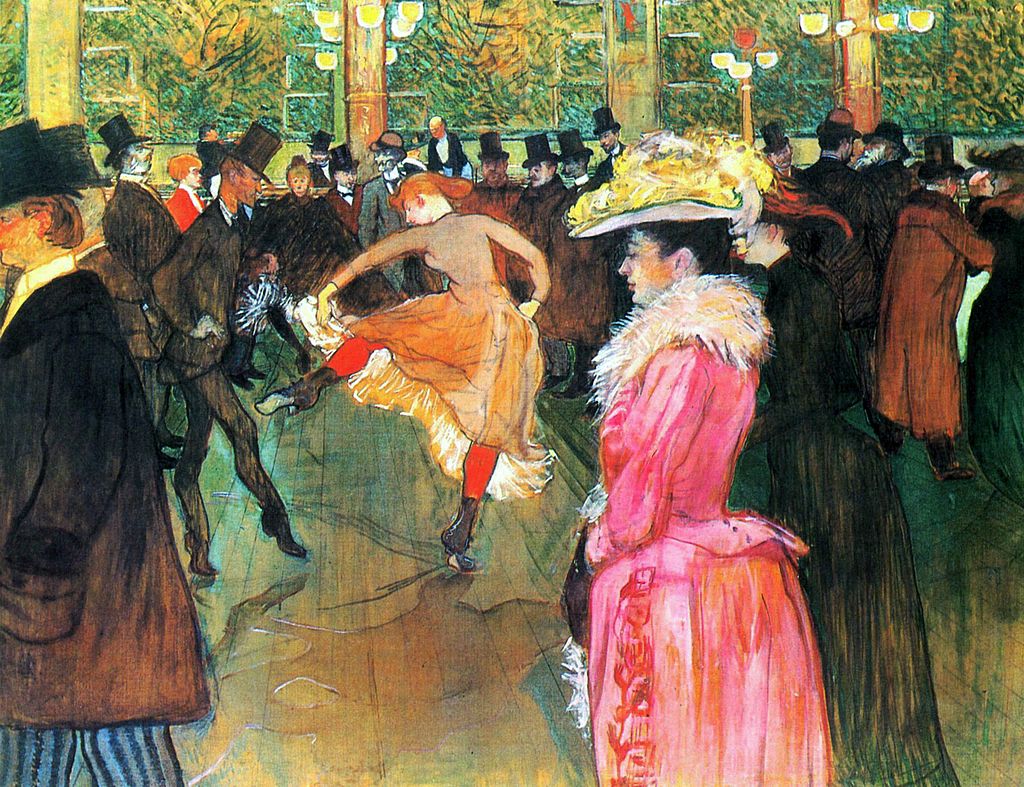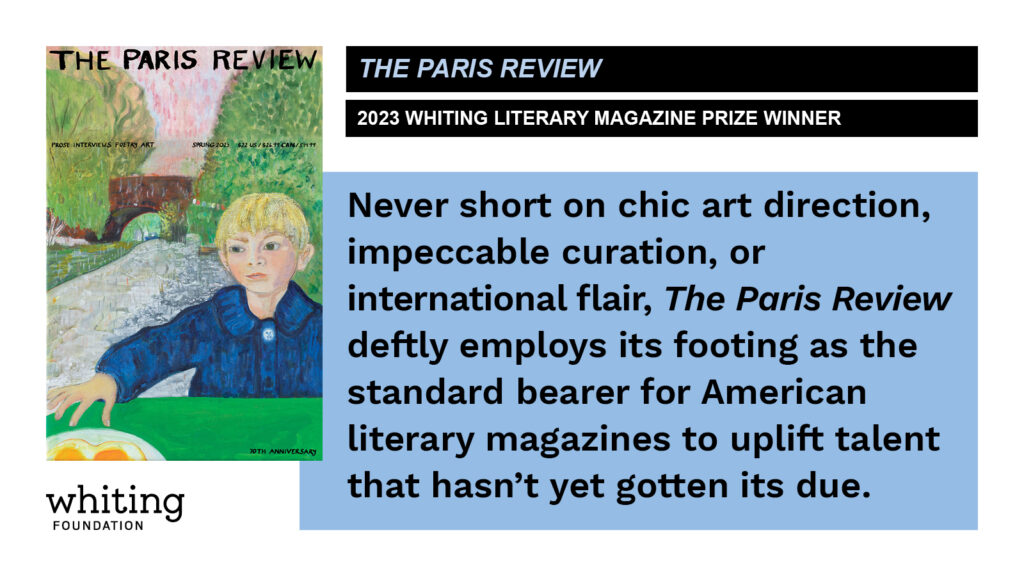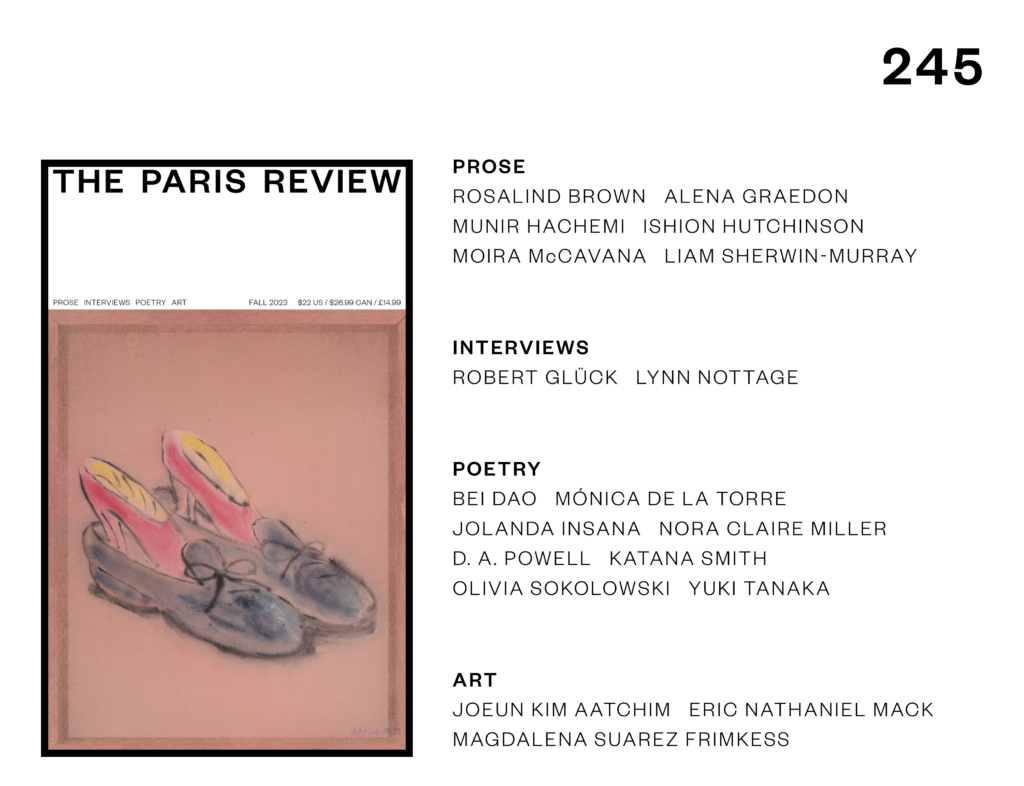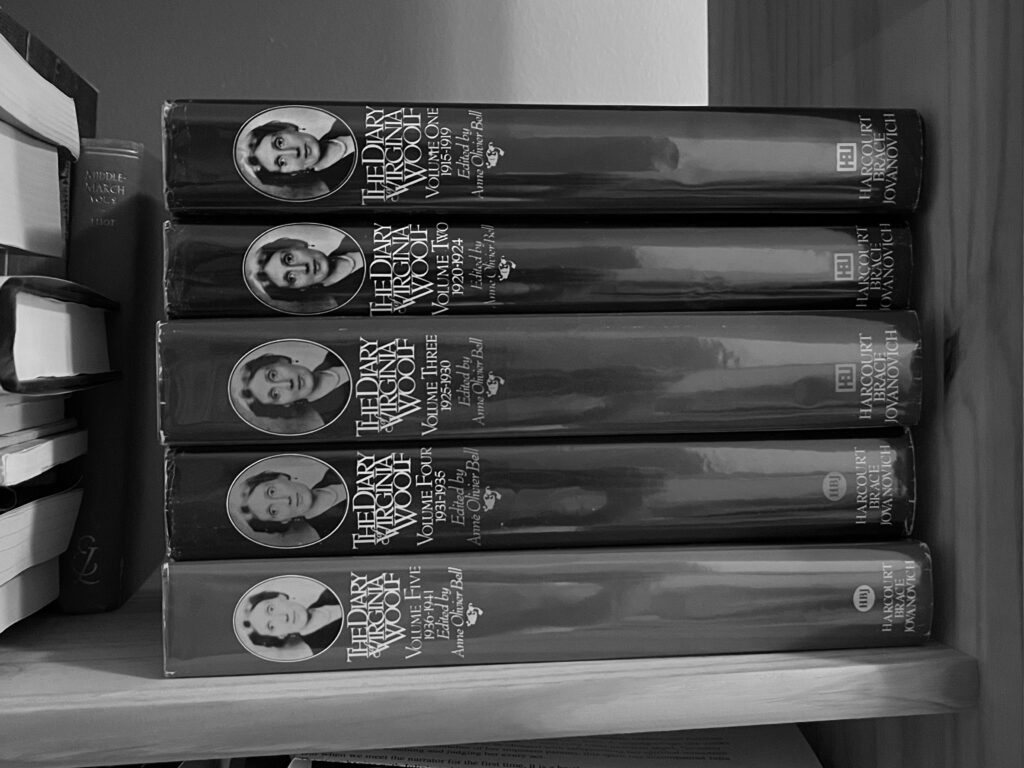Sometimes, as the Review’s print deadline looms, I catch myself fantasizing about a return to university life. I should clarify that, in this fantasy, “university” is a quiet, spartan room, with a bed, an armchair, and a constant supply of paperback classics. It is entirely lacking in lectures, academic conferences, or tenure-track infighting, and also bears no resemblance to my actual experience as an undergraduate: a fog of nervous smoking, romantic dysfunction, and tearful struggles to conjure up an essay on, say, doorframes in the work of Henry James.
Sadly, there is, to my knowledge, no program or job at which reading is the sole responsibility—and, of course, nothing complicates a love of books like the attempt to build a life around them. Not one but two pieces in our new Fall issue suggest, for instance, that even too much Shakespeare can have side effects: in Rosalind Brown’s “A Narrow Room,” a conscientious student on deadline for an essay about the Sonnets finds herself continually waylaid by an erotic triangle of her own invention, while Ishion Hutchinson recalls his undoing as a homesick sophomore alone in a windowless yellow closet in Kingston, Jamaica, obsessing over local folklore, Crime and Punishment, and Hamlet. And in Munir Hachemi’s rollicking “Living Things,” translated from the Spanish by Julia Sanches, four arrogant, well-read young men spend the summer after graduation working in the South of France, searching for that “hazy, ill-defined thing that we coined experience,” only to find that their education has in no way prepared them for the outside world, with its onslaught of corruption, exploitation, and force-fed chickens.
My tendency to romanticize university likely originates from those moments when getting through the assigned reading became an almost mystical interlude. I sometimes think of the night I spent with The Book of Margery Kempe, the fifteenth-century text usually considered the first autobiography in English. A visionary with a less-than-kosher approach to the saintly life, Kempe had run a brewery that went bust and given birth to fourteen children before she persuaded her reluctant husband to join her in a vow of chastity and embarked on a whistle-stop pilgrimage—much to the irritation of her fellow travelers, who quickly tired of her God-given gift of tears. I’d loved Margery, her shameless grandiosity and the frankly sexual tone in which she wrote about God and his Son, and I’d forgotten about her until a few years ago, when I came across Robert Glück’s ravishing, funny, heartbreaking novel Margery Kempe (1994), which interweaves her story with that of his all-consuming affair with a younger, richer man. As Glück tells Lucy Ives in his new Art of Fiction interview, he, too, first discovered Kempe as an undergraduate, while studying medieval literature at UCLA, and was drawn to her precisely “because she set everyone’s teeth on edge,” but it wasn’t until he found himself in anguish over a breakup that he realized he could set his midlife crisis alongside hers. The novel broke over me as what Kempe would call a “revelacyon,” and turned me—as it has many others—into a proselytizer for Glück, who has a knack for conveying the religious power of desire. “When people would ask me—and sometimes they did—to write about them,” he tells Ives, “I’d reply, ‘First, you have to break my heart.’ ”
Glück, incidentally, is not a believer in the “short story”; he prefers the conte, the tale, or the piece of gossip. We’ll leave you to ponder the differences—I’m not sure I can always tell; it’s possible that my mind was somewhere else during that particular lecture—as you read this issue, which also includes an Art of Theater interview with Lynn Nottage, poetry by Bei Dao and D. A. Powell, and debut fiction by Liam Sherwin-Murray.








